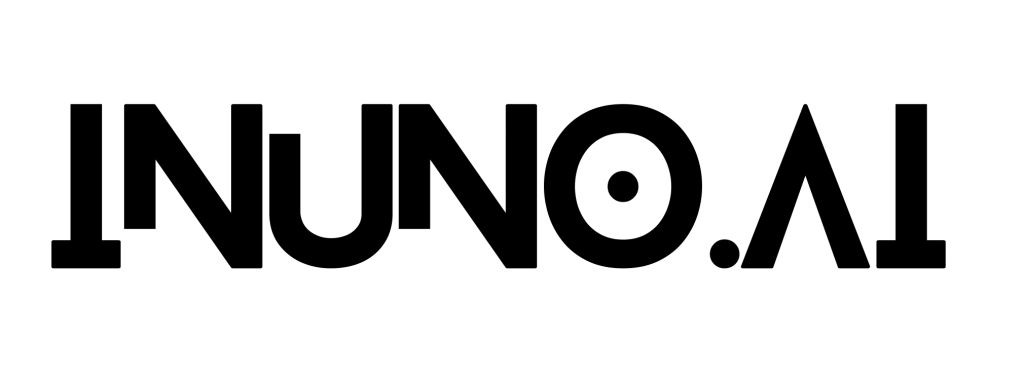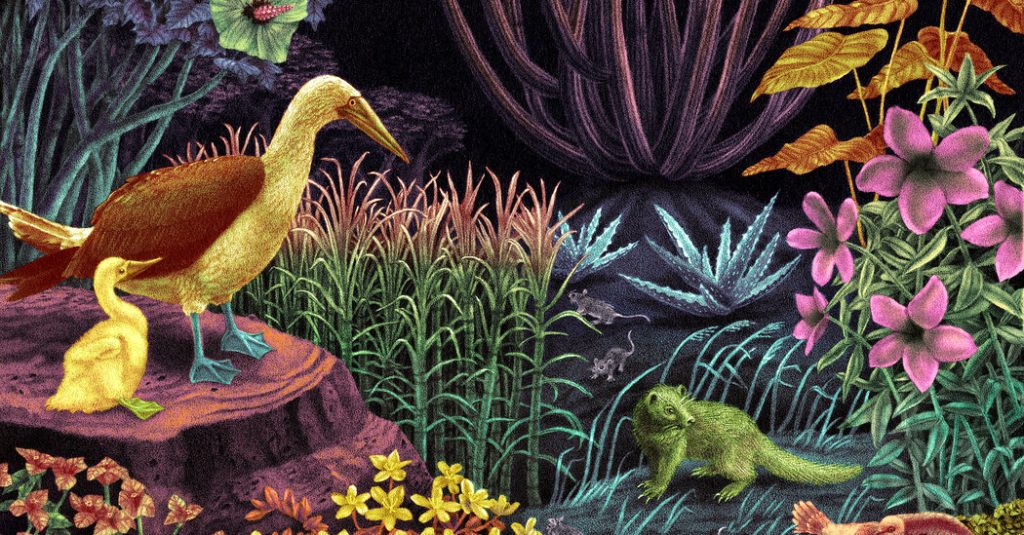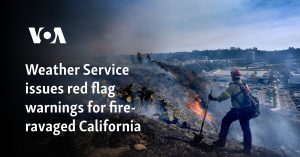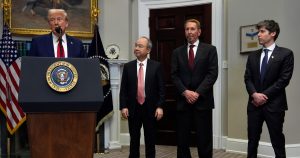DARK LABORATORY: On Columbus, the Caribbean, and the Origins of the Climate Crisis, by Tao Leigh Goffe
The slow-motion disaster that is climate change started with our unearthing long-buried organic matter and lighting it aflame, which released particles into the atmosphere that hold warmth. This is the story we tell ourselves about a central cause of our warming planet. But what if slowing down the climate change juggernaut has proved so difficult in part because we talk about the problem all wrong? Tao Leigh Goffe’s “Dark Laboratory: On Columbus, the Caribbean, and the Origins of the Climate Crisis” argues that current scientific discourse obscures the racist roots of our existential predicament while also overlooking potential strategies of repair and endurance.
Goffe, an interdisciplinary scholar and writer, contends that to understand our present plight, we need to look back in time, in particular to the arrival of Christopher Columbus in the Caribbean in 1492, which she cites as a marker for the start of globalization. Over the intervening centuries, the region’s interconnected islands have served as a kind of testing ground for different colonial practices — chattel slavery, resource extraction and the classification of flora and fauna (as well as people) — that transformed the world, destroying ecosystems, lives and livelihoods, while simultaneously bearing strange fruit.
“Dark Laboratory” is as interested in identifying the causes of the climate crisis as it is in offering a kind of alternative account of life in the wake of environmental apocalypse. “Once I realized that European colonial archives are evidence lockers full of crimes against humanity, I began to stop arguing the case in court, as it were,” Goffe writes. “It becomes liberating then to evaluate not what lies enclosed within the walls of colonial architectures, but to begin to comprehend the magnitude of what is outdoors.”
In this case, “outdoors” encompasses a lot of different places at different moments in time. “Dark Laboratory” hops from Jamaica to Hong Kong, New York and London — all locales to which Goffe traces her roots — landing intermittently on a host of other spots in between (Dominica, Tahiti, Sardinia, Hawaii). In each, Goffe’s ear is tuned to songs of resistance, to what it looks like to make life amid (and after) colonial subjugation. The result is an assemblage of sorts where blue-footed boobies, coral reefs and even bat guano play a leading role, illustrating the ways nonhuman actors and their attendant ecologies have survived human predation.
Consider, for instance, “the curious case of the Calcutta mongoose in Jamaica” (the title of one of Goffe’s chapters). The animal was imported by a white plantation owner to eat the rats (endemic to Europe) that were eating the sugar cane (endemic to India) that he was hellbent on exporting to the United States and Europe, where it would be distilled into rum. This tiny passage in a much larger tale of imperial appetites transformed the ecology of Jamaica, leading to, among other things, the near extinction of native ground-nesting birds.
But instead of portraying the furtive mammal as a culprit, Goffe deftly swerves around the familiar story of invasive species to write at length about the mongoose’s radical mothering practices: All births within a colony occur on the same night, with the result that all mongoose babes — up to three litters a year — belong to all mongoose mothers, a potential blueprint, Goffe argues, for collective survival. And yet much of the popular literature about these creatures paints them as lascivious tricksters, not to be trusted. For whose violence, Goffe asks, do they serve as a scapegoat?
Aiming to center Black and Indigenous history and ecology, “Dark Laboratory” is a pointed response to the dominance of scientific rationalism as the language best suited to the climate crisis. Yet Goffe’s narrative moves so rapidly among disciplines — biology, literature, economics, musicology, geoscience — that it’s easy to lose track of where or when we are in space and time. Her episodic style feels purposeful, an obvious rebuke of a more conventional narrative structure, yet the effect can be truly disorienting.
There have been many proposals for what to name our particular era: the Anthropocene, the Capitalocene, the Trumpocene. Each has its own origin story, rooted in the sediment or the stock market or the doomscroll. But what if the instinct for linear chronology — for beginnings, middles and ends — obscures the imbricated injustices that shape the present?
As Goffe writes, “The 21st century requires new genres of climate storytelling to encompass the multiplicity and nonlinearity of salvation if it is possible.” “Dark Laboratory” provides a noble and necessary, if at times unwieldy, example of what one such genre might look like, offering readers a novel account of post-colonial resistance, regeneration and survival.
DARK LABORATORY: On Columbus, the Caribbean, and the Origins of the Climate Crisis | By Tao Leigh Goffe | Doubleday | 342 pp. | $35







